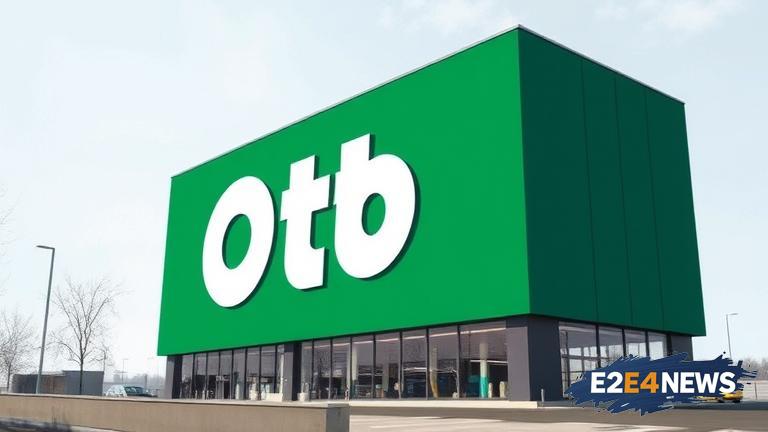In a shocking move, German e-commerce giant Otto has decided to withdraw from the Dutch market after 40 years of operation. The company, which was founded in 1949, has been a household name in the Netherlands for decades, offering a wide range of products, including clothing, electronics, and home goods. However, despite its long history in the country, Otto has struggled to compete with other online retailers in recent years, leading to significant losses. According to reports, the company’s Dutch arm has been losing money for several years, with losses totaling tens of millions of euros. The decision to withdraw from the market is seen as a last resort, with the company’s management citing increased competition and a decline in sales as the main reasons. The withdrawal is expected to affect hundreds of employees, who will either be laid off or relocated to other parts of the company. The news has come as a surprise to many in the industry, as Otto was once one of the leading online retailers in the Netherlands. However, in recent years, the company has faced increased competition from other online retailers, such as Amazon and Bol.com, which have eaten into its market share. Despite efforts to revamp its online platform and improve its customer service, Otto has struggled to keep up with the changing retail landscape. The company’s withdrawal from the Dutch market is seen as a significant blow to the country’s e-commerce sector, which has been growing rapidly in recent years. The news has also raised concerns about the future of the retail industry in the Netherlands, with some analysts predicting that other retailers may follow suit. However, others have pointed out that the withdrawal of Otto from the market could create opportunities for other retailers to fill the gap. The Dutch market is highly competitive, with many online retailers vying for customers’ attention. However, with the right strategy and a focus on customer service, it is possible for retailers to succeed in this market. Otto’s withdrawal from the Dutch market is a reminder that even established retailers can struggle to adapt to changing consumer behavior and increased competition. The company’s decision to withdraw from the market is seen as a pragmatic one, with the company’s management prioritizing its financial stability over its presence in the Dutch market. The withdrawal is expected to be completed by the end of the year, with the company’s online platform and physical stores closing down. The news has been met with sadness from many of the company’s customers, who have been loyal to the brand for decades. However, others have welcomed the opportunity for new retailers to enter the market and offer alternative products and services. The Dutch government has also responded to the news, with the Minister for Economic Affairs expressing disappointment at the company’s decision to withdraw from the market. The government has pledged to support affected employees and to work with other retailers to fill the gap left by Otto’s withdrawal. In conclusion, the withdrawal of Otto from the Dutch market is a significant development in the country’s e-commerce sector, with far-reaching implications for the retail industry. While the news has come as a surprise to many, it is a reminder that even established retailers can struggle to adapt to changing consumer behavior and increased competition. As the retail landscape continues to evolve, it will be interesting to see how other retailers respond to the challenges and opportunities presented by the withdrawal of Otto from the Dutch market.





